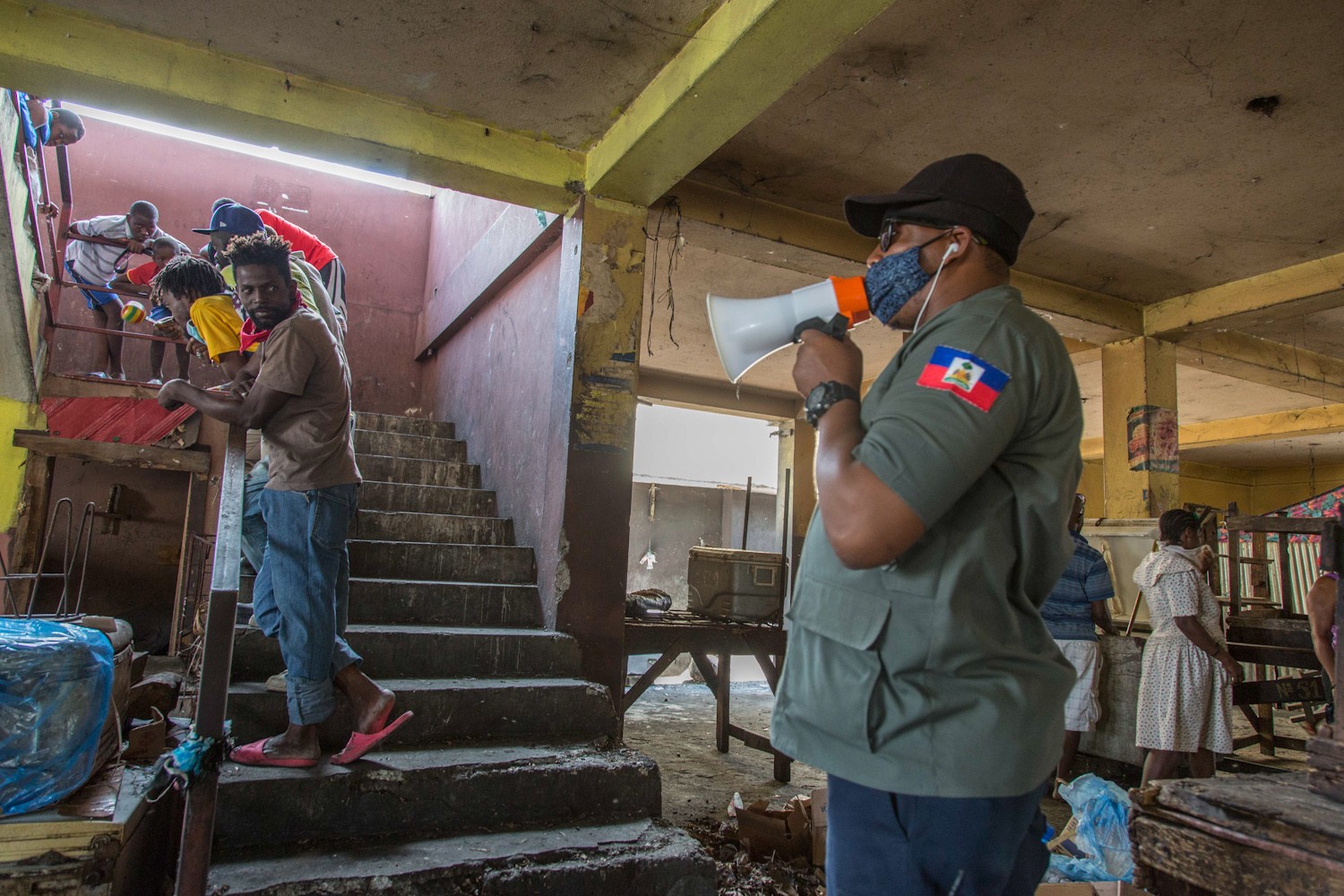The interplay between spiritual doctrines and social realities often unveils profound insights into human existence. In the context of Haiti’s current struggle against COVID-19, the teachings of the Bahá’í Faith, particularly those concerning the Law of Abundance, resonate with significant relevance. This article endeavors to explore the nexus between the Bahá’í principles, the socio-economic challenges exacerbated by the pandemic, and the intrinsic human capacity for resilience and unity amidst adversity.
At the heart of Bahá’í teachings lies the concept of abundance, a notion that transcends mere material accumulation. In the face of human suffering and societal strife, such as that encountered during the COVID-19 pandemic, this principle underscores a profound philosophical precept: the belief that God’s grace and providence are ever-present, offering limitless opportunities for spiritual and material growth. The Law of Abundance encourages individuals and communities to cultivate a mindset rooted in generosity, shared responsibility, and collaborative action.
To appreciate the full scope of this teaching, one must first recognize the socio-economic landscape of Haiti. For many years, the nation has grappled with systemic poverty, political instability, and recurrent natural disasters. The advent of COVID-19 added another layer of complexity, exacerbating existing vulnerabilities and placing immense pressure on health systems and economic structures. As the pandemic surged, the Bahá’í community in Haiti responded by embodying the Law of Abundance, seeking to alleviate the suffering of their fellow citizens through innovative and compassionate approaches.
The outbreak of COVID-19 necessitated a reevaluation of resources and priorities. It illuminated the stark inequalities prevalent in society and highlighted the urgent need for a spirit of cooperation, not competition. The Bahá’í Faith advocates for the unity of humankind and the importance of collective action in times of crisis. This perspective is crucial in the context of the pandemic, where isolation can lead to despair, while communal support fosters healing and hope.
Moreover, the Bahá’í emphasis on the power of education and knowledge emerges as a particularly salient point amidst the challenges posed by the pandemic. In Haiti, educational initiatives have been crucial in dispelling misinformation about the virus and promoting healthy practices. Bahá’í teachings encourage the pursuit of knowledge as a tool for empowerment, particularly in areas adversely affected by public health crises. By equipping individuals with accurate information and skills, the Bahá’í community demonstrates how the application of the Law of Abundance can lead to tangible improvements in health and well-being.
In addition to education, the Bahá’í community’s response to COVID-19 underscores the significance of fostering spiritual resilience. This is achieved through communal prayers, devotional gatherings, and cooperative outreach strategies that bring people together in their shared plight. The Law of Abundance teaches that spiritual fulfillment does not stem solely from material wealth but is nourished through the bonds of unity and love that connect individuals within a community. In times of crisis, such spiritual nourishment becomes paramount, providing strength and solace to those who may feel overwhelmed by the chaos surrounding them.
The notion of holistic health, a core principle within Bahá’í teachings, further enriches the discourse surrounding the pandemic. Health is not merely the absence of disease but rather a state of complete physical, mental, and spiritual well-being. In this light, Bahá’í teachings advocate for a comprehensive approach to healthcare that encompasses not only medical treatment but also psychological support, social justice, and spiritual enrichment. Such an approach is particularly crucial in Haiti, where the multifaceted challenges presented by COVID-19 require innovative and integrative solutions.
Furthermore, the principles of service and altruism are deeply embedded within the fabric of Bahá’í teachings. The pandemic has prompted numerous Bahá’í individuals and communities to initiate and participate in humanitarian efforts aimed at providing support to those most affected. This embodies the essence of the Law of Abundance, where giving transcends receiving. By prioritizing the welfare of others, individuals contribute to a collective ethos that fosters resilience and empowers communities to navigate the uncertainties posed by the ongoing health crisis.
Ultimately, the synergy between the Bahá’í teachings, the historical context of Haiti, and the current challenges brought about by COVID-19 reveals a rich tapestry of resilience, cooperation, and abundance amid adversity. The lessons gleaned from this intersection invite a broader conversation about the transformative power of faith in the face of despair. They challenge individuals and communities to embrace a framework that prioritizes shared well-being, encouraging them to rise above individualistic pursuits in favor of collective flourishing.
In conclusion, as Haiti grapples with the multifarious impacts of COVID-19, the teachings of the Bahá’í Faith illuminate pathways toward healing and renewal. The Law of Abundance serves not only as a theological construct but also as a practical guide for fostering unity, compassion, and resilience during times of crisis. By embodying these principles, individuals can navigate the complexities of life, ensuring that hope and healing prevail in the face of adversity. Through a concerted effort grounded in spiritual nourishment and communal support, the Bahá’í community in Haiti exemplifies the profound potential of humanity to transform challenges into opportunities for growth and unity.
